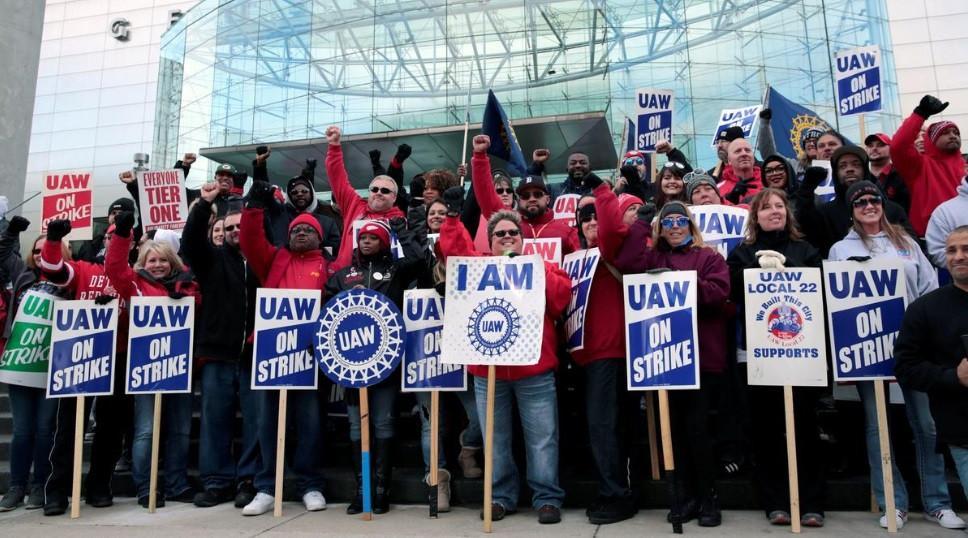UAW will keep GM strike going while members vote on new contract
DETROIT/WASHINGTON-Reuters

The United Auto Workers union said on Oct. 17 workers at General Motors Co will stay off the job while they vote on a proposed contract that delivers higher pay for full-time workers and better terms for temporary workers, but allows the automaker to close three U.S. plants.
Union leaders are giving the 48,000 striking workers until Oct. 25 to vote on the contract terms, but have recommended ratification of the deal.
The decision to keep the strike going for another week reflects the pressure on top UAW leaders amid a continuing federal corruption probe of the union.
Disappointment among rank and file at the failure to prevent the plant shutdowns and block GM from moving work to Mexico could be challenges for union leaders as they seek to have the deal ratified.
In 2015, rank and file UAW workers at Fiat Chrysler Automobiles NV rejected the first version of a contract.
This time, UAW leaders are keeping workers on strike pay of $275 a week while they decide on the tentative agreement.
“Our members will make this decision,” UAW spokesman Brian Rothenberg said at a press conference at the Detroit building where GM is based. “It is their contract. It is in their hands.”
GM hopes the deal can be approved expeditiously. “We encourage the UAW to move as quickly as possible through the ratification process, so we can resume operations and get back to producing vehicles for our customers,” the company said in a statement.
GM shares closed down 1.3% at $36.19 on Thursday, after a modest rally on Wednesday following the UAW’s announcement it had reached a tentative contract deal.
On Wall Street, reaction to the proposed agreement, the highlights of which the union released, has been muted. “We continue to believe that if this is ratified, it is a fairly solid outcome for GM,” RBC Capital Markets analyst Joseph Spak wrote in a note Thursday. “The financial implications of the deal don’t look too onerous.”
The strike began on Sept. 16, with UAW negotiators seeking higher pay for workers, greater job security, a bigger share of profit and protection of healthcare benefits.
Other issues included the fate of plants GM has indicated it may close, the use of lower-paid temporary workers and GM’s production of vehicles in Mexico.
The strike cost GM an estimated $2 billion according to analysts, hurt auto suppliers and played a role in U.S. manufacturing output falling more than expected in September.
The longest nationwide strike against a Detroit automaker since 1970 became a political event. Democratic presidential candidates joined UAW picket lines, eager to win union votes in Midwest swing states.
For his part, U.S. President Donald Trump put pressure on GM Chief Executive Mary Barra before the strike to preserve jobs at a car plant in Lordstown, Ohio, that she had targeted for closure. T
he White House did not comment.
However, under the deal, GM will move ahead with closing Lordstown and two parts plants in Baltimore and Warren, Michigan.
Workers from Lordstown on Thursday were outside GM’s Detroit headquarters, where UAW leaders were meeting, to protest the planned agreement.
GM also appears to have dodged a significant addition to its long-term balance sheet liabilities by agreeing to make a one-time cash distribution to UAW members eligible for pensions.
















